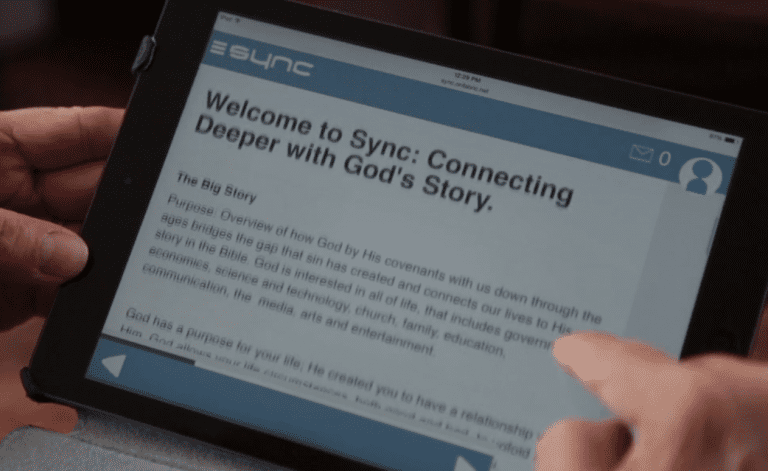Dan Buttafuoco, president of the Historical Bible Society, specified five primary reasons to read the Bible:
1. The Bible has transformed the world
2. People are willing to die for this book
3. It’s the most accurate book of antiquity
4. It contains a life-changing message of freedom
5. It connects you to history’s most important figure
Acts 17-18 shows the importance of teaching God’s word after one evangelizes (Acts 16).
In Thessalonica, Paul reasoned with Jews from the Scriptures for three Sabbaths. After he explained and gave evidence that Christ had to suffer and rise again from the dead, many God-fearing Jews and leading women were persuaded and joined Paul and Silas. Jealous Jews and wicked men from the marketplace formed a mob and set the city in an uproar (Acts 17:1-9). Explain and give evidence from the Bible so people can believe in Christ.
The brothers sent Paul and Silas to Berea where they went to a synagogue of the Jews. They were more noble-minded that those in Thessalonica as they received the word with great eagerness examining the Scriptures daily to see whether these things were so. Many believed including prominent Greek women and men. Jews from Thessalonica stirred the crowds when they found that Paul was proclaiming the word in Berea. Paul was sent to Athens so Silas and Timothy could join him later (Acts 17:10-15). Examine the Bible daily to determine whether the word is being taught correctly.
Paul’s spirit was provoked when he saw Athens filled with idols, but reasoned every day with Jews and God-fearing Gentiles in both the synagogue and the marketplace. Some philosophers brought Paul to the Areopagus after hearing him preach a new thing about Jesus and the resurrection. Paul commended their religious nature and said God created and gave life to all things while referencing an inscription on an altar, ‘TO AN UNKNOWN GOD.’ God determines peoples’ appointed times and where they live so they could seek and find Him. God calls everyone to repent since we are His offspring and not a material object. He will judge the world in righteousness through Jesus who God raised from the dead (Acts 17:16-31). Seek common ground before relating the truth of Jesus and the resurrection.
Some who heard of the resurrection of the dead sneered and others said they would listen again. Some men believed including Dionysius the Areopagite and a woman named Damarisa (Acts 17:32-34). Expect positive and negative responses to the teaching of the gospel.
In Corinth, Paul worked as a tent-maker with Aquila and Priscilla. Paul reasoned in the synagogue every Sabbath trying to persuade Jews and Greeks. When Silas and Timothy came down from Macedonia, Paul devoted himself completely to the word testifying to the Jews that Jesus was the Christ. When they resisted, he decided to go to the Gentiles. He entered the home of Titius Justus, a worshiper of God, and Cripus, the synagogue leader, who believed with his household along with many Corinthians that were baptized. The Lord told Paul in a vision not to fear but continue speaking since God would be with him. He taught the word of God for a year and six months (Acts 18:1-11). Give priority to speaking the word of God without fear to impact families.
The Jews rose up against Paul and brought him before Gallio, proconsul of Achaia, who refused to judge him because no crime was committed. The beat Sosthenes, the synagogue leader, but Gallio showed no concern. Paul left Priscilla and Aquila in Ephesus. He entered the synagogue, set sail from Ephesus, landed in Caesarea, greeted the church and went down to Antioch. Having spent some time there, he passed through the Galatian region and Phrygia, strengthening all the disciples (Acts 18:12-23). Spend much time strengthening Christ’s disciples in the word of God.
Apollos, an eloquent man mighty in the Scriptures, came to Ephesus. He had been instructed in the way of the Lord, fervent in spirit, teaching accurately about Jesus, but only acquainted with John’s baptism. Priscilla and Aquila explained to him God’s way more accurately. In Achaia, Apollos helped greatly those who believed through grace by powerfully refuting the Jews in public demonstrating from the Scriptures that Jesus was the Christ (Acts 18:24-28). Help people learn God’s word more accurately so they can lead others to Christ.
Which of the following applications in teaching God’s word do you want to focus:
1. Explain and give evidence from the Bible so people can believe in Christ
2. Examine the Bible daily to determine whether the word is being taught correctly
3. Seek common ground before relating the truth of Jesus and the resurrection
4. Expect positive and negative responses to the teaching of the gospel
5. Give priority to speaking the word of God without fear to impact families
6. Spend much time strengthening Christ’s disciples in the word of God
7. Help people learn God’s word more accurately so they can lead others to Christ







